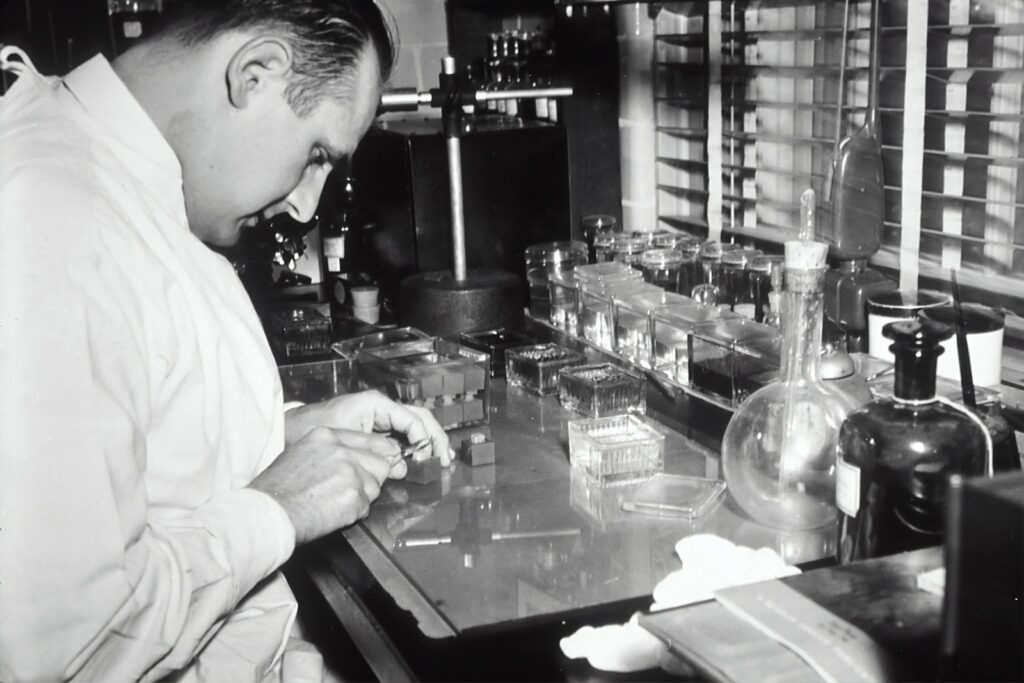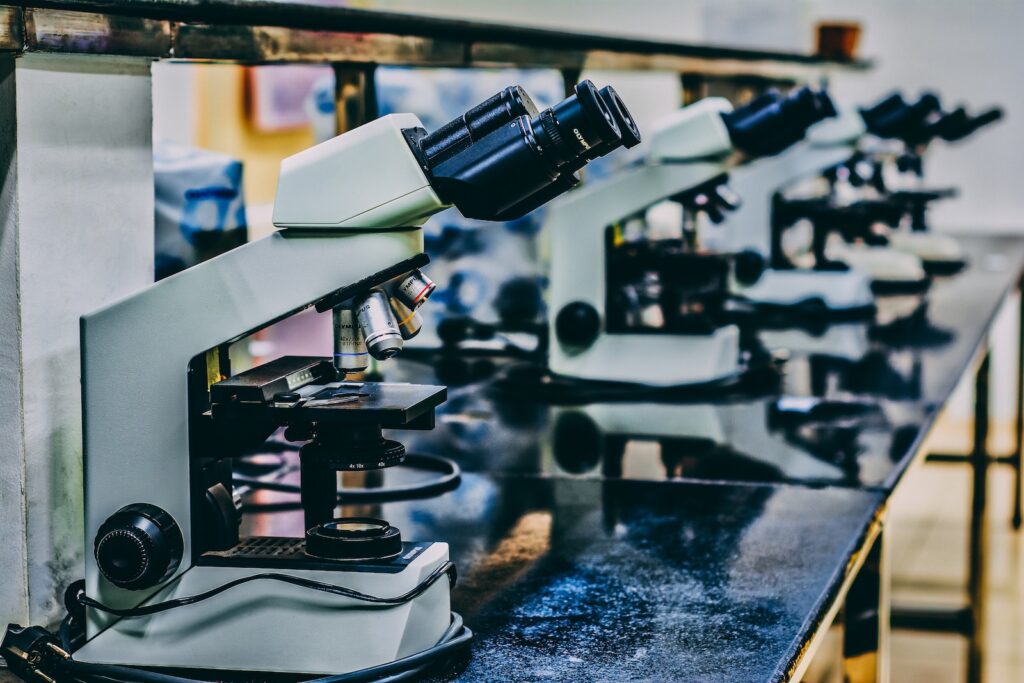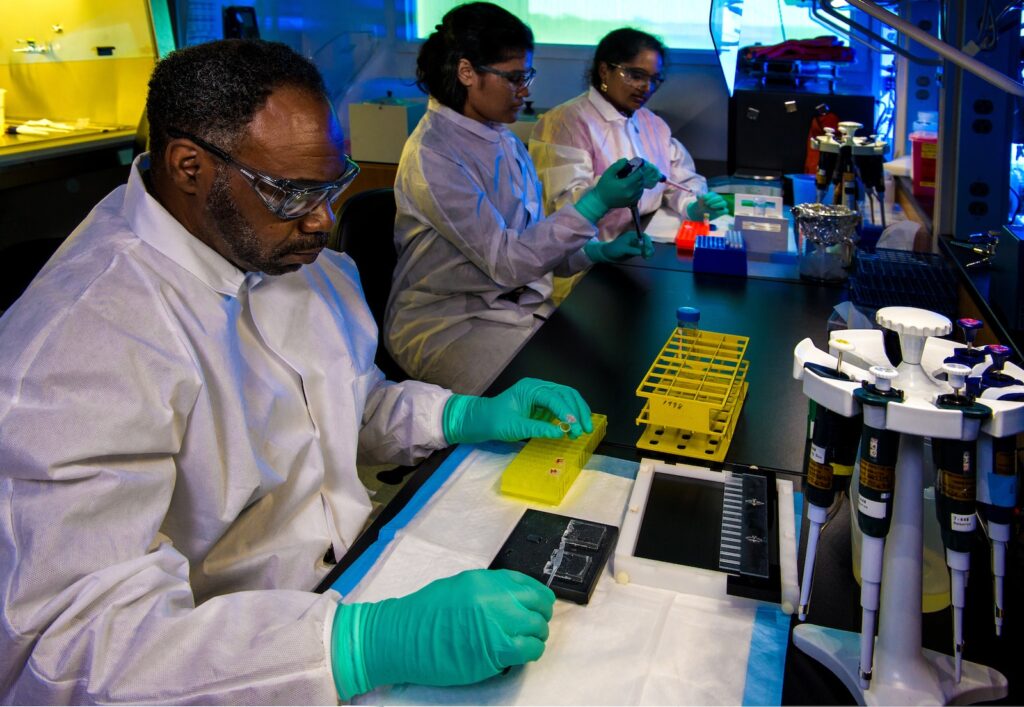Introduction
The intersection of science and ethics has always been a point of contentious debate, deliberation, and discussion. This confluence of seemingly disparate worlds forms the essence of the Code of Ethics in Science, a universally acknowledged standard of conduct and principles that guides the scientific community’s actions, practices, and decisions.
This code, often unwritten and underspecified, permeates every facet of scientific research, from initial conception to final publication and dissemination of results. It is a compass that directs the course of scientific inquiries, ensuring that the pursuit of knowledge remains respectful, truthful, and responsible.
The Code of Ethics in Science serves as the bedrock of the scientific enterprise, guiding researchers in navigating the labyrinth of moral dilemmas and ethical conundrums that they inevitably encounter in their pursuit of understanding the natural world.
This code encourages scientists to uphold the highest standards of integrity and honesty, demanding that they remain impartial, transparent, and accountable for their research. It implores them to respect the rights, dignity, and welfare of all parties involved, whether it is their colleagues, research subjects, or the broader public that their work impacts.
Understanding the importance of ethics in science is paramount to appreciating the depth and breadth of its influence. Ethical considerations in science are not mere afterthoughts or peripheral concerns.
Instead, they are integral components of the scientific process, shaping the trajectory and outcomes of research in profound ways.
They ensure that scientific research is conducted with the utmost respect for human dignity, environmental sustainability, and societal welfare, thus safeguarding the public’s trust in the scientific community.
This article aims to delve into the intricate landscape of ethics in science, tracing its evolution, examining its current state, and contemplating its future direction.
It will shed light on the historical context that has shaped ethical considerations in science and discuss how these standards have evolved over time. It will explore the ethical guidelines that govern the conduct of scientific research, the publication and sharing of scientific findings, and the broader societal implications of scientific discoveries.
Furthermore, this exploration will illuminate the role of scientists as ethical leaders and their responsibilities in guiding the ethical discourse. It will also highlight the international policies and guidelines that reinforce global ethical standards in science and the crucial role of international organizations in promoting and enforcing these standards.
Ultimately, through a comprehensive discussion and analysis, this article aims to underscore the importance of maintaining, discussing, and strengthening ethical standards in the scientific world. It is a call to action for the scientific community to remain vigilant and proactive in ensuring that the quest for knowledge never compromises the values we hold dear.
History of Science and Ethics

Science and ethics have always been closely intertwined, with the history of their relationship tracing back to the very origins of scientific discovery. Even in the earliest stages of science, ethical considerations played a pivotal role in how individuals conducted their research, interpreted their findings, and shared their knowledge with others.
For instance, in the ancient Greek era, scientists such as Hippocrates, often referred to as the Father of Medicine, set forth codes of conduct for physicians, emphasizing the doctors’ responsibilities towards their patients and the importance of confidentiality.
This ancient code essentially laid the groundwork for science’s ethical considerations for centuries to follow.
Over time, as scientific knowledge and technology evolved, so too did the ethical questions that arose from it. The Age of Enlightenment, a period in the 17th and 18th centuries marked by significant advancements in science and intellectual thought, brought about new ethical dilemmas.
As scientists began to understand more about the human body and the natural world, questions of morality and ethics began to surface. For instance, the development of anatomical studies raised questions about the ethics of dissecting human bodies for research. The understanding that scientific findings could be manipulated or misused also began to emerge, prompting a shift in ethical considerations.
The 20th century brought about some of the most significant changes in ethical standards within the world of science. The atrocities of World War II, including the horrific human experiments conducted by Nazi doctors, prompted the global community to establish guidelines for ethical research involving human subjects.
The Nuremberg Code, adopted in 1947, was one of the first documents to outline ethical standards for research, stressing the importance of informed consent, beneficence, and nonmaleficence. This code has since influenced other international agreements and guidelines, such as the Declaration of Helsinki.
In addition, the rise of technology and digital communication in the late 20th and early 21st centuries has led to a new era of ethical considerations in science. Issues such as data privacy, digital ethics, and the responsible use of artificial intelligence have become increasingly important.
The rapid pace of technological advancement continues to present new challenges for scientists, ethicists, and policymakers, requiring continuous evaluation and adaptation of ethical standards.
Looking back at the history of science and ethics, it is clear that they have always intersected and evolved together. Ethical considerations have been a guiding force in the scientific world, ensuring that the pursuit of knowledge is conducted responsibly and with respect for human rights and dignity.
As we continue to push the boundaries of scientific discovery, these ethical standards will remain a critical element in shaping the future of science.
Current Ethical Standards in Science

The landscape of science is constantly evolving, and with it, so are the ethical standards that govern its practice. Indeed, the ethical standards in science are a crucial pillar that ensures the credibility and reliability of scientific research and its outcomes.
Ethical considerations in conducting research are multifaceted and pervade all stages of the scientific process. Scientists must ensure that their research methodology does not inflict harm, physical or psychological, on their subjects, whether human or animal.
They must also respect the rights and dignity of human participants, including their right to privacy and informed consent. Moreover, researchers must avoid any bias or conflict of interest that could compromise the integrity of their findings.
This includes being transparent about any potential conflicts and ensuring that funding sources do not influence the research direction or outcomes.
In terms of publishing research, ethical considerations also come into play. Peer review, the process by which scientific papers are reviewed by other experts in the field before publication, must be objective, impartial, and free from personal or professional bias.
Authors must also ensure they acknowledge all contributors to their research and must not engage in plagiarism or fabrication of data. The goal here is to maintain the integrity of the scientific literature and to provide a solid foundation for subsequent research.
Sharing research results presents another set of ethical considerations. Scientists have an obligation to share their findings with both the scientific community and the public. This includes making data available for others to validate and build upon their results, a practice that is central to scientific progress.
However, this must be balanced with the need to protect sensitive information and respect privacy rights. For instance, when research involves human subjects, safeguards must be in place to ensure data is anonymized before it is shared.
The responsible conduct of research also extends to the handling of scientific errors. If errors are discovered in published research, whether they resulted from honest mistakes or misconduct, they should be promptly corrected.
Openness and transparency, even in the face of errors, contributes to the self-correcting nature of science and helps maintain public trust in scientific research.
Accountability is a key aspect of ethical standards in science, especially considering the far-reaching effects of scientific discoveries.
Scientists are accountable to other researchers, to the institutions that support them, to funding bodies, and ultimately, to society at large. This means that they must not only adhere to ethical standards in the conduct of their research, but also consider the social and ethical implications of their findings.
In a nutshell, current ethical standards in science encompass a broad spectrum of considerations, from the conduct of research and publication of results to the sharing of data and accountability for outcomes.
Upholding these standards is paramount not only for the credibility of science, but also for the advancement of knowledge and the benefit of society.
Impact of Science on Society

Science has an immense, near immeasurable impact on society. Its discoveries and advancements have fundamentally transformed the way we live, think, and interact with the world around us. These impacts can be both positive and negative, underscoring the importance of ethical considerations in the scientific community.
On the positive side, the fruits of scientific research have resulted in remarkable advancements in various fields from medicine to technology. It has eradicated diseases, extended life spans, improved the quality of life, and connected people across the globe in unprecedented ways.
However, it is important to note that these groundbreaking discoveries and technologies would not have been possible without research. Rigorously conducted research that adheres to the highest ethical standards is key to generating reliable and valid findings that can be trusted for application in society.
However, the impact of science on society is not always positive. Some scientific findings and technologies also pose serious ethical dilemmas and unintended consequences. For instance, advancements in genetic engineering raise questions about the limits to human intervention in natural processes.
Artificial Intelligence, while promising immense potential, also brings about concerns regarding privacy, security, and the displacement of jobs. Nuclear technology, which has clear benefits in terms of energy production, also carries the risk of proliferation and misuse.
Therefore, ethical considerations are essential in not only conducting and publishing scientific research but also in translating and applying these findings into real-world applications.
Scientists have a responsibility to ensure that their research is conducted ethically, that the findings are shared transparently and that the potential implications, both positive and negative, are communicated accurately to society.
This culture of responsible conduct and data sharing promotes trust and accountability, further reinforcing the positive impact of science on society. Scientists must be accountable for their research and its effects on society, being prepared to address ethical issues as they arise.
It is through this careful balancing of scientific innovation and ethical responsibility that the true value of science can be realized in society.
In conclusion, science has had a profound and far-reaching impact on society. Its influence is seen in every aspect of our lives, from the technology we use, to the medicines we take, and the policies that govern our societies.
However, with this influence comes an enormous responsibility to ensure that science is conducted, shared, and applied ethically. Only through a continued commitment to ethical conduct can we ensure that scientific progress continues to benefit society as a whole, rather than causing harm or exacerbating inequality.
The Role of Scientists in Ethical Matters

Scientists occupy a unique position in the vast realm of ethical matters. Given their proximity and involvement with the evolution and development of scientific theories, methodologies, and discoveries, they are expected to be the torchbearers of ethical conduct.
Being at the forefront of novel explorations, they are responsible for ensuring that the scientific community adheres to a stringent code of ethics.
The responsibilities of scientists in ethical discussions are not confined to avoiding forgery, plagiarism, or manipulation of data. They encompass a broader spectrum, including the fair treatment of subjects in experiments, the humane use of animals for research, ensuring the safety of the environment, and preventing the misuse of scientific knowledge for harmful purposes.
The role of a scientist goes beyond the laboratory, involving decision-making that respects and upholds the dignity, rights, and welfare of all beings affected by scientific endeavors.
There are numerous instances where ethical issues intertwine with scientific research. For instance, genetic engineering and cloning raise questions about the sanctity of life, while the use of artificial intelligence in data analysis or decision-making brings up concerns about privacy and autonomy.
In such dilemmas, scientists play a pivotal role in finding a balance between scientific advancement and ethical boundaries. They are required not just to apply their technical expertise, but also to engage in moral reasoning, taking into account the potential implications of their work.
There have been inspiring examples of scientists taking a stand in ethical matters. In the late 20th century, scientists around the world rallied against the production of biological weapons, highlighting the ethical issue of using scientific knowledge for destructing life.
More recently, climate scientists have been vocal about the ethical imperative to address global warming, emphasizing the responsibility science has towards the survival and welfare of future generations.
International policies and guidelines, like the Declaration of Helsinki or the Nuremberg Code, provide a framework for ethical conduct in science. However, scientists themselves play an integral role in promoting and enforcing these ethical standards.
They have the ability to influence their peers, fostering an environment of integrity, honesty, and responsibility. Their actions and decisions can serve as benchmarks for others in the scientific community.
In conclusion, the role of scientists in ethical matters is significant and multi-dimensional. They are not just the creators of scientific knowledge but also the custodians of ethical conduct in the realm of science.
Their decisions, actions, and attitudes towards ethical considerations can shape the trajectory of scientific research, influencing not only the progress of science but also the societal implications of scientific discoveries.
International Policies and Guidelines

The international stage is replete with numerous policies and guidelines intended to uphold the highest ethical standards in the realm of science. These policies are designed to ensure that scientific research is carried out with integrity, respect for human rights, and concern for the welfare of the environment.
They extend their influence to various aspects of science including the conduct of research, publication of findings, and sharing of data and knowledge.
Prominent international organizations play a pivotal role in promoting and establishing ethical standards in science. These entities include the World Health Organization (WHO), United Nations Educational, Scientific and Cultural Organization (UNESCO), and the International Committee of Medical Journal Editors (ICMJE), among others. They work tirelessly to ensure that the conduct of science adheres to internationally accepted ethical norms, thereby promoting trust and credibility in scientific outcomes.
For instance, UNESCO’s Universal Declaration on Bioethics and Human Rights provides a framework of principles and procedures for ethical decision-making in scientific contexts. The 2005 Declaration is an international instrument aimed at guiding states towards the formulation of their legislation and policies.
It stresses the importance of respect for human dignity and human rights, consent, non-discrimination and non-stigmatization, respect for cultural diversity and pluralism, social responsibility and health, and sharing of benefits, among others.
The enforcement of ethical standards in science is a critical aspect of these international policies and guidelines. Enforcement mechanisms vary depending on the nature of the scientific endeavor and the jurisdiction in question.
However, common practices include peer review processes, ethical review boards, and regulatory bodies that assess compliance with ethical standards. In some cases, breaches of ethical norms can result in severe consequences, from the retraction of scientific publications to legal ramifications.
However, the interpretation and application of these standards can sometimes be complex and challenging due to cultural, social, and regional differences. This complexity necessitates the need for ongoing dialogue, education, and training to ensure a consistent understanding and application of these ethical standards globally.
In conclusion, the plethora of international policies and guidelines provides a robust framework for maintaining ethical standards in science. These standards not only ensure that scientific research is conducted with integrity and respect for human rights, but also foster trust and credibility in scientific findings.
The role of international organizations in promoting and enforcing these standards, coupled with the need for continual dialogue and understanding, underscores the importance of ethics in the world of science.
Conclusion
In the sphere of scientific research and discovery, the significance of ethics cannot be overstated. At every stage, from conception to deployment, the tenets of ethics play a pivotal role in guiding the actions and intentions of scientists.
The role of ethical considerations in science is not merely a matter of adhering to protocol, but a fundamental principle that ensures the integrity of the profession and the safety and wellbeing of society.
The intricate intertwining of science and ethics is a testament to the evolution of our understanding of the world and our place in it. The historical trajectory of science and ethics illustrates a dynamic relationship that has been marked by significant events and changes in ethical standards.
It is a narrative of growth, learning, and constant re-evaluation that reflects the inherent complexity of the scientific endeavor.
Presently, ethical standards in science encompass a broad spectrum of areas, including the conduct of research, the publication of findings, and the sharing of data.
These standards are vital in maintaining the credibility of science, fostering public trust, and ensuring that the fruits of scientific labor are used for the benefit of all. They act as a crucial safeguard against misuse and abuse, and create a framework within which scientists can pursue knowledge and innovation.
The impact of scientific discoveries on society underlines the urgency and necessity of ethical considerations. From the advent of nuclear power to the exploration of genetic engineering, the potential for both tremendous good and harm is apparent.
Consequently, scientists bear a considerable responsibility. They are not just creators and discoverers, but also stewards and guardians. The ethical dimension of science calls for active engagement, critical thinking, and a deep sense of responsibility on the part of scientists.
International policies and guidelines further underscore the global importance of ethical standards in science.
Organizations worldwide have a collective responsibility to promote and enforce these standards, ensuring that scientific progress does not compromise ethical principles. This global commitment is an affirmation of the shared understanding that our collective wellbeing depends on the ethical practice of science.
In conclusion, the code of ethics in the world of science is not just a set of rules to be followed, but a philosophical compass that directs the pursuit of knowledge towards the greater good. This unceasing dialogue between science and ethics is vital for our progress as a species.
It is a call to action, an invitation to think, question, and understand. It is a reminder that the path of discovery is not just guided by curiosity and ambition, but also by a profound sense of responsibility and a commitment to the values that define our humanity.

